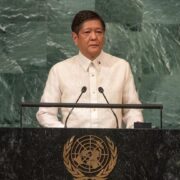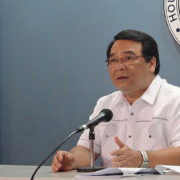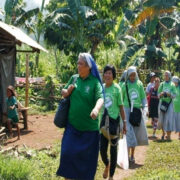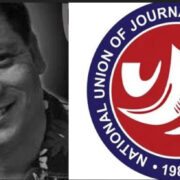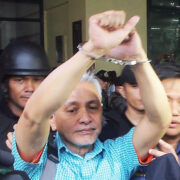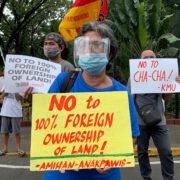Groups denounce Remulla’s red-tagging justification before UN
A network of church and human rights groups condemned justice secretary Jesus Crispin Remulla’s justification of government’s red-tagging of critics before the United Nations Human Rights Committee (UNHRC), saying the practice is against the values of a democratic and civilized society.
The Philippine Universal Periodic Review Watch said they take strong exception to Remulla’s remark at the 136th session of the UNHRC in Geneva, Switzerland last Tuesday that red-tagging is “part of democracy.”
“It’s par for the course. If you can dish it out, you should be able to take it,” Remulla said.
“That, for me, is probably the essence of democracy. Are we not allowed to criticize our critics too? Is it a one-way street?” he added.
But the Philippine UPR Watch pointed out that Remulla made his remarks just as the UNHRC is discussing the dangers of red-tagging on the lives of people who raise legitimate issues on government policy.
“His remarks, while a brazen official admission of the practice, do not only encourage and normalize red-tagging but also brandish it as an institutionalized and orchestrated method of the government in dealing with perceived political critics,” Philippine UPR Watch said.
“Redtagging especially of State forces and their adjuncts has dire consequences on persons, families, organizations and communities,” the network said.
The network revealed that there were 801 political prisoners as well 442 human rights defenders who became victims of extra-judicial killings at the end of the Rodrigo Duterte government, most, if not all, were red tagging victims.
In Ferdinand Marcos Jr.’s first 100 days in office, there have been 10 civilians killed while four have been abducted and forcibly disappeared, the network reported. At least 37 have been arbitrarily arrested and detained, it added.
“Feigning ignorance on these consequences and packaging these threats as mere exercise of freedom of expression are clear signals of a policy of tolerance for human rights violations and impunity,” the network said.
Red tagging explained, again
Former UN special rapporteur Phillip Alston first called the world’s attention on the practice of red tagging by the Philippine government in 2007, describing it as a classification of a wide range of groups – including human rights advocates, labour union organizations, journalists,
teachers, unions, women’s groups, indigenous organizations, religious groups, student
groups, agrarian reform advocates and others –as ‘fronts’ and then as
enemies of the State’ that are accordingly considered to be legitimate targets.”
The practice is a continuation of the McCarthyist red-baiting strategy in the 1950s employed against United States of America government critics.
At least one Philippine Supreme Court Associate Justice, Marvic Leonen, has opined that red-tagging causes human rights violations.
“To make it easy for military and paramilitary units to silence or cause untold human rights abuses on vocal dissenters, government agents usually resort to stereotyping or caricaturing individuals. This is accomplished by providing witnesses who, under coercive and intimidating conditions, identify the leaders of organizations critical of the administration as masterminds of ordinary criminal acts. Not only does this make these leaders’ lives and liberties vulnerable, a chilling effect on dissent is also generated among similar-minded individuals,” Justice Leonen wrote.
In March 2021, then Senator Franklin Drilon proposed a law defining and penalizing red-tagging as “State’s malicious labeling and stereotyping of individuals or groups as communists or terrorists. It has not been passed.
Standing ground
Following Remulla’s apparent admission of the practice, the Philippine UPR Watch called on members of the UNHRC to further denounce government’s red-tagging.
The network also voiced fears that justice for victims of red-tagging will remain elusive and human rights violations continue during the Marcos government as under the past Duterte regime.
“[W]ith an administration that has not indicated any commitment, sincerity and political will to commit to justice and accountability, it is imperative to hold our ground, push back and demand for the protection of our rights,” the network said.
Philippine UPR Watch representatives are set to travel to Geneva in November to personally deliver their statements before the UNHRC assembly. # (Raymund B. Villanueva)


